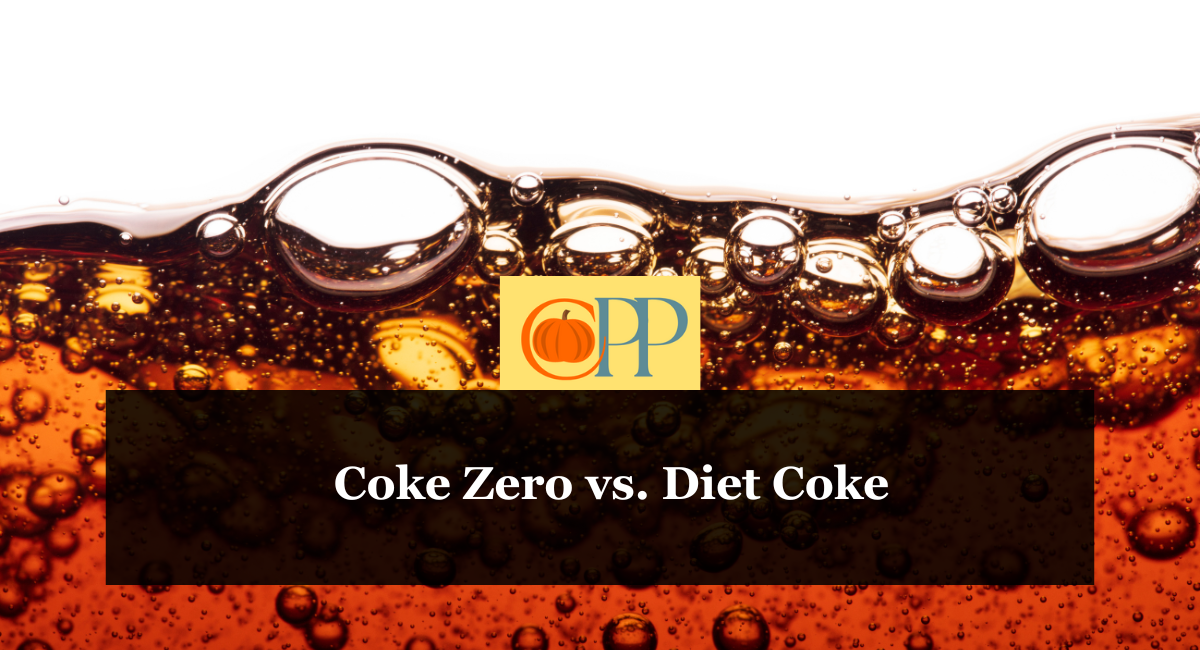For decades, Coca-Cola has offered two sugar-free cola options: Diet Coke and Coke Zero. Both beverages boast zero calories and zero sugar, leaving many consumers wondering – what’s the real difference?
Fear not, cola connoisseurs! This guide dives into the details of Coke Zero vs. Diet Coke, exploring their ingredients, taste profiles, and even a brief history of these iconic drinks.
A Blast from the Past: The Rise of Diet Coke (1982)
Diet Coke was the original sugar-free cola giant, hitting the market in 1982. Back then, sugary sodas dominated the beverage landscape. Diet Coke’s arrival was a game-changer.
It catered to a growing health-conscious population seeking a calorie-free alternative to classic Coca-Cola. The success of Diet Coke paved the way for a wave of sugar-free beverages, forever changing the drinking habits of millions.
Diet Coke’s marketing cleverly positioned it as a sophisticated choice for the modern woman, further solidifying its place in pop culture.
The Newcomer: Coke Zero Enters the Ring (2005)
Fast forward to 2005, and Coca-Cola introduced Coke Zero. This new sugar-free option aimed to deliver a taste closer to the original Coca-Cola, appealing to a broader audience.
Market research suggested that some consumers found Diet Coke a bit too light or lacking in the body department. Coke Zero aimed to bridge that gap by offering a more robust flavor profile that mimicked the taste of classic Coke.
So, how do these two contenders stack up? Let’s take a closer look at the key differences.
Sweeteners: Unveiling the Magic Behind the Zero Calories
Both Coke Zero and Diet Coke are calorie-free thanks to the use of artificial sweeteners. However, the specific sweeteners they use differ slightly, potentially influencing taste and aftertaste:
Diet Coke: Aspartame is the primary sweetener in Diet Coke. Aspartame is about 200 times sweeter than sugar, allowing for a tiny amount to deliver a significant level of sweetness.
Aspartame has been around for decades and is one of the most widely studied artificial sweeteners. However, some people raise concerns about its safety, although regulatory bodies around the world have deemed it safe for consumption in moderate amounts.
Coke Zero: Coke Zero uses a blend of aspartame and acesulfame potassium, also known as Ace-K. Ace-K is another artificial sweetener, approximately 200 times sweeter than sugar.
While some people perceive a slight bitter aftertaste with Ace-K, the combination with aspartame in Coke Zero helps to mask this aftertaste and create a more complex sweetness profile.
It’s important to note that artificial sweeteners are not without controversy. Some people express concerns about their long-term health effects.
While regulatory bodies have deemed them safe for consumption, further research is always ongoing. If you have any concerns, it’s always best to consult with a healthcare professional.
Flavor Profile: A Matter of Taste and Perception
The subtle difference in sweeteners contributes to a variation in taste between the two drinks. Here’s a breakdown of how each might tantalize your taste buds:
Diet Coke: Diet Coke has a lighter, slightly sweeter taste compared to Coke Zero. Some describe it as having a bit of a peppery aftertaste.
This could be due to the use of aspartame alone as the sweetener, or potentially other flavoring ingredients used in the recipe.
Coke Zero: Coke Zero boasts a bolder flavor profile, aiming to mimic the taste of classic Coca-Cola more closely. This is likely due to the combination of sweeteners used, with Ace-K potentially adding a touch of fullness to the flavor profile.
Additionally, Coke Zero might contain other flavoring ingredients that contribute to its more robust taste compared to Diet Coke.
Ultimately, the taste preference between Coke Zero and Diet Coke comes down to personal choice. Some people favor the lighter sweetness of Diet Coke, while others prefer the bolder, more robust flavor of Coke Zero.
There’s no right or wrong answer – it all depends on what tickles your taste buds!
